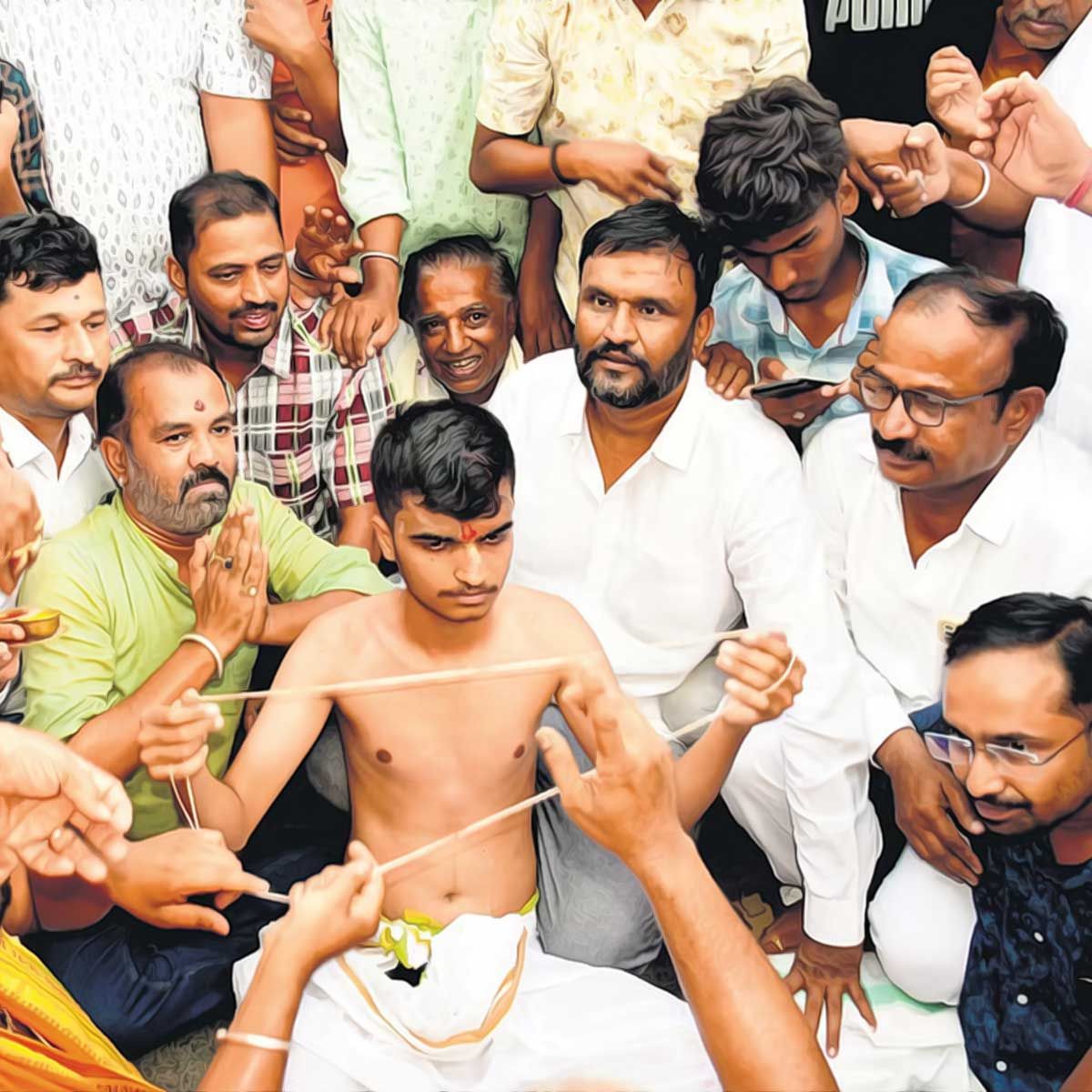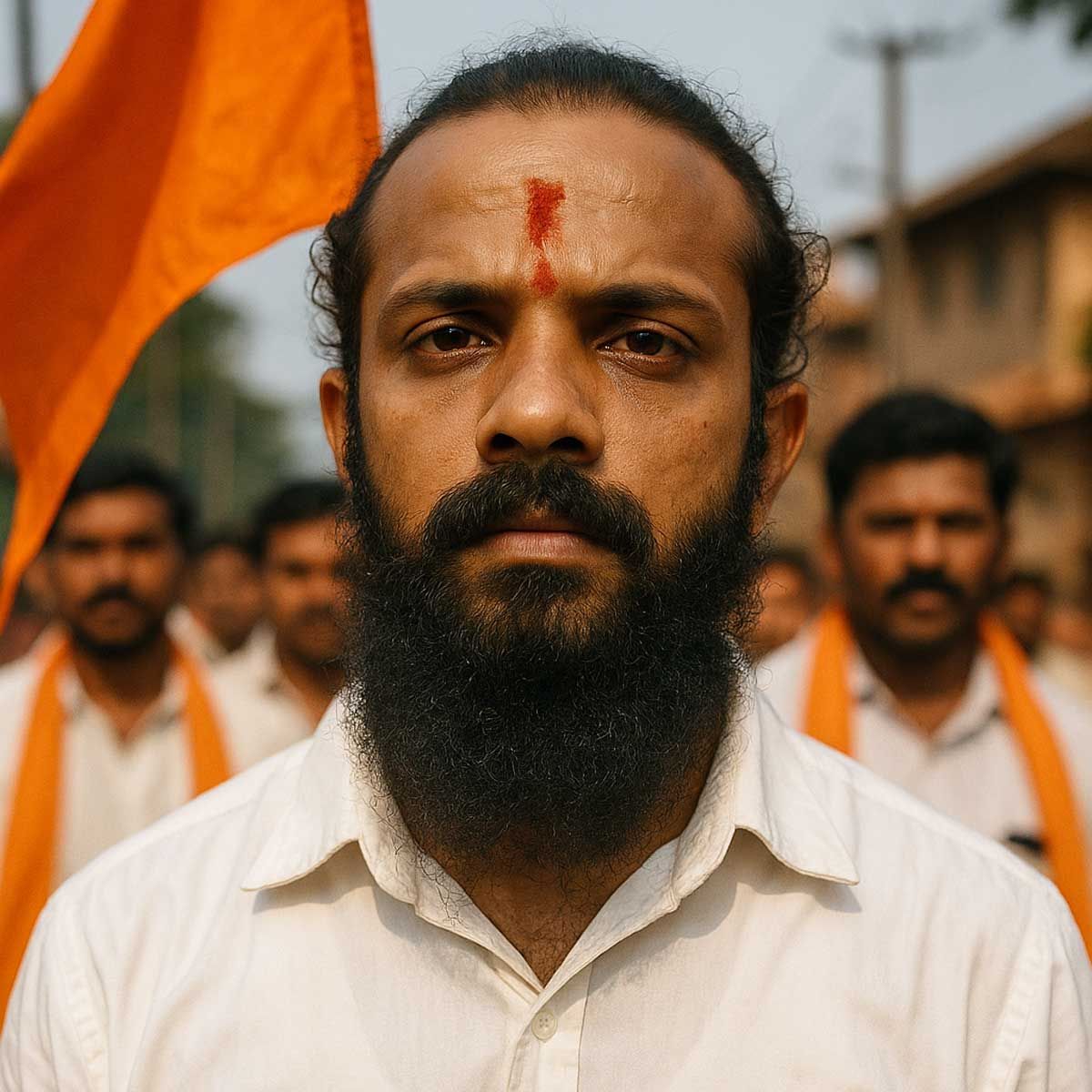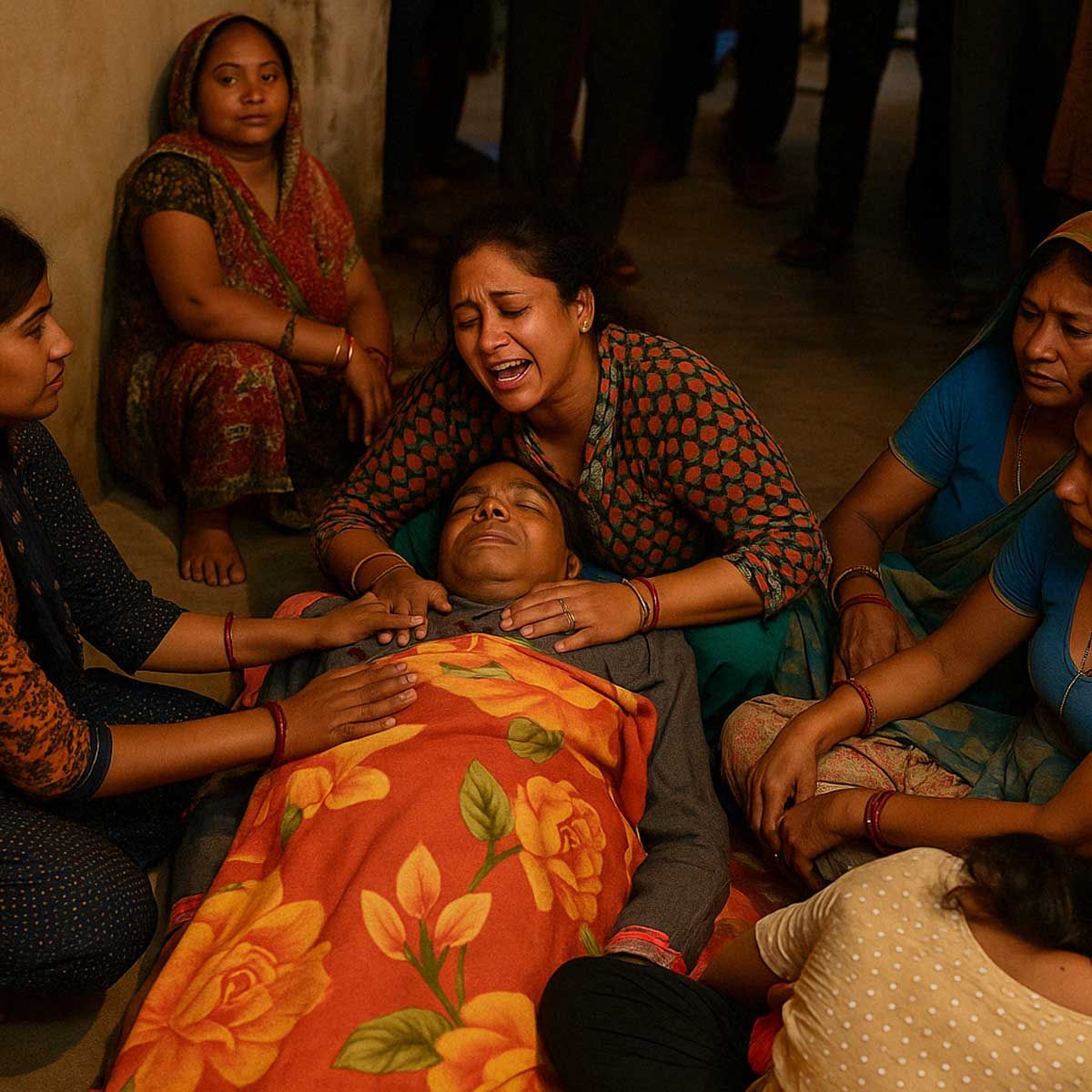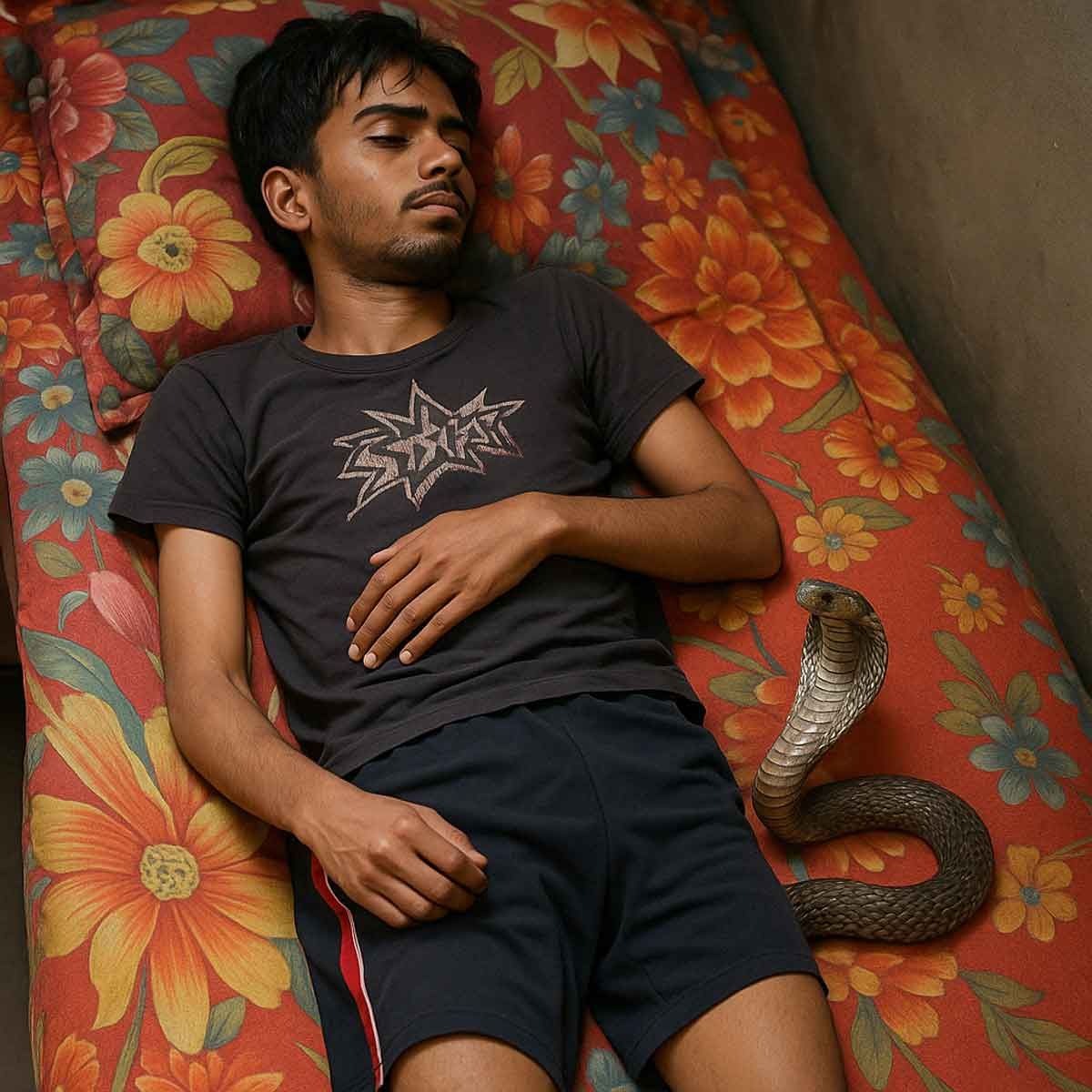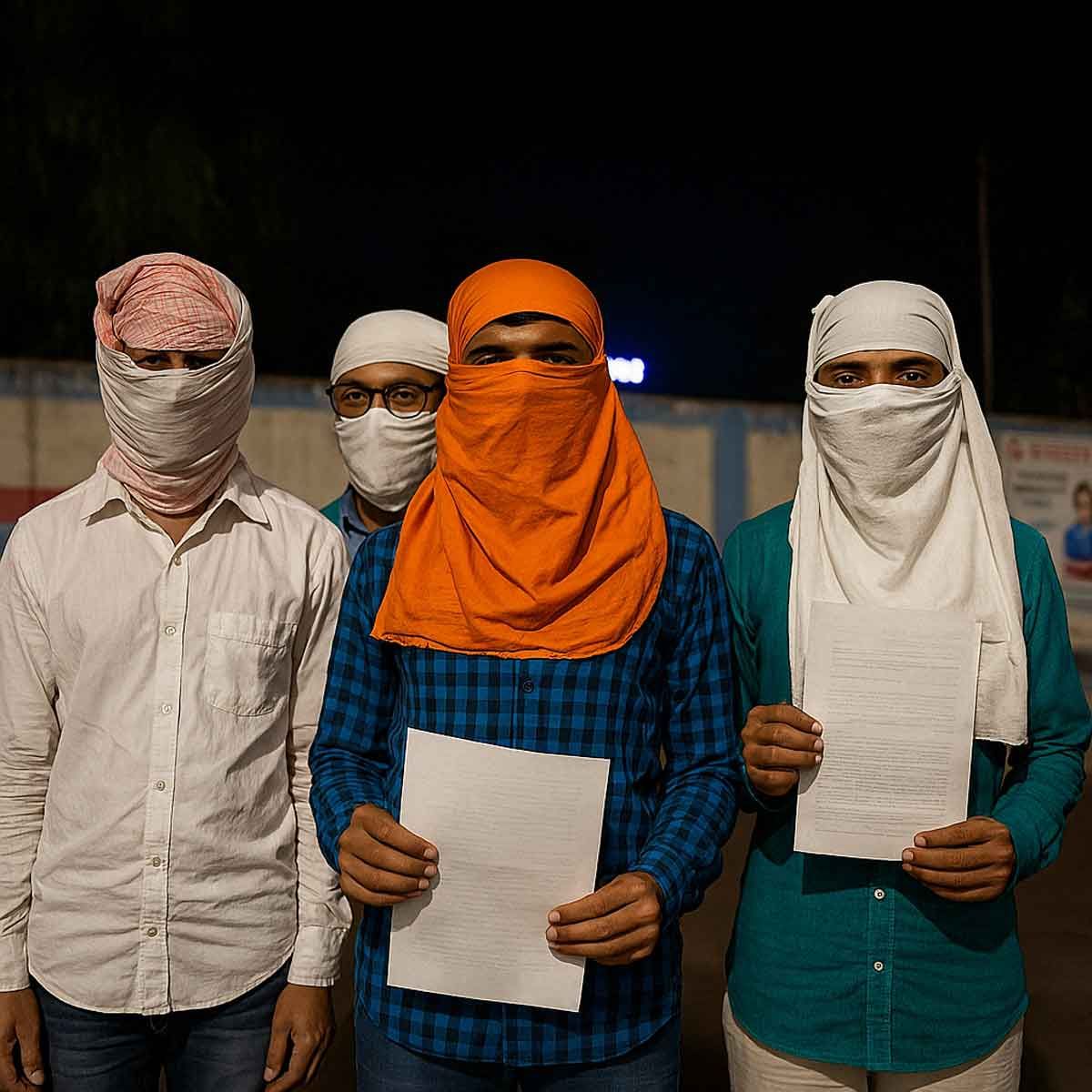More Coverage
Twitter Coverage
Satyaagrah
Written on
Satyaagrah
Written on
Satyaagrah
Written on
Satyaagrah
Written on
Satyaagrah
Written on
JOIN SATYAAGRAH SOCIAL MEDIA
In a disturbing display of Hindumisia, a Coca-Cola factory in Ayodhya, a sacred Hindu city, sparked outrage by forcibly cutting off the Kalava of Hindu employees, citing 'food security,' showing blatant disrespect for religious sentiments and traditions
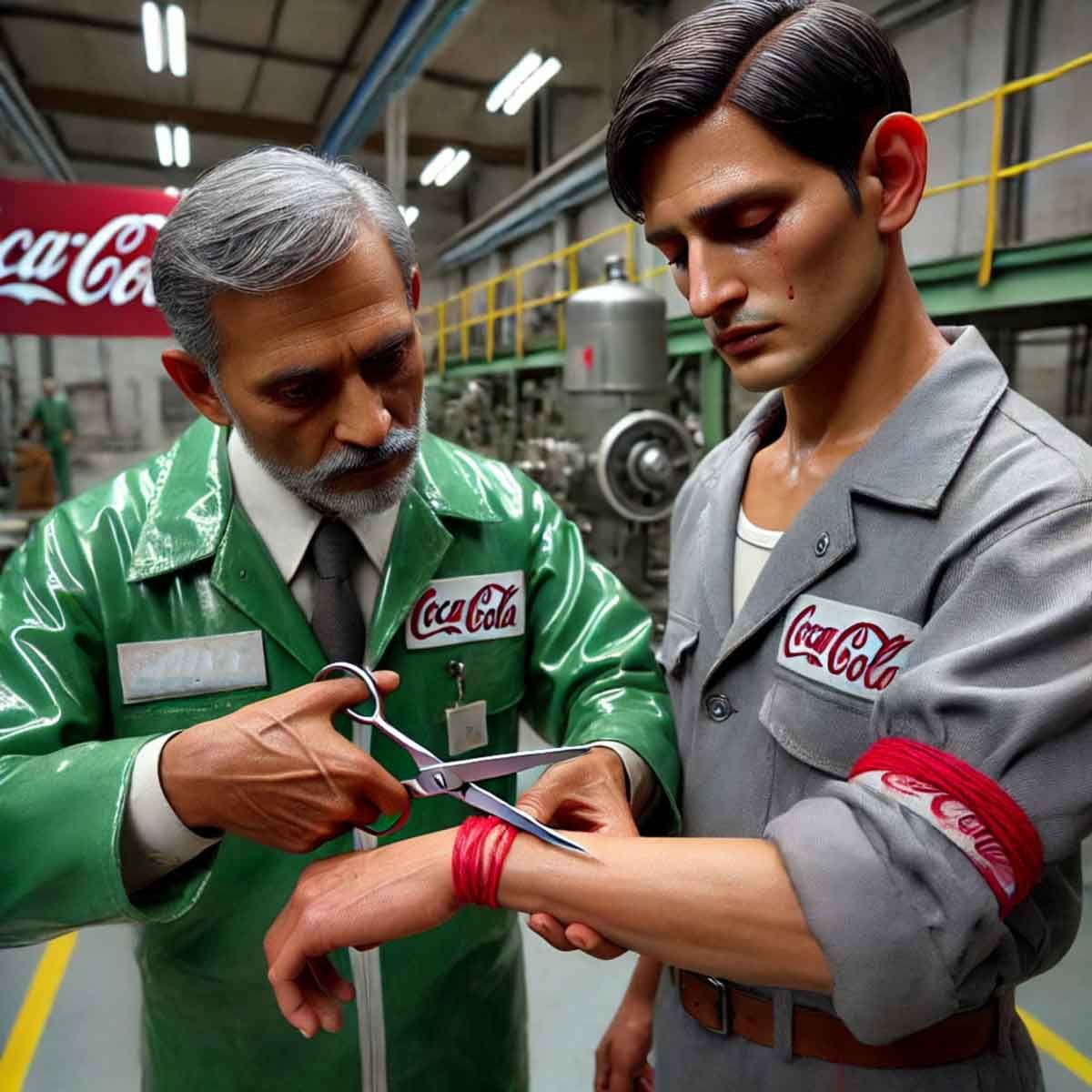
A recent incident at a Coca-Cola factory in Ayodhya, Uttar Pradesh, has led to significant public outrage. The factory, which belongs to the American beverage giant, was seen cutting off the Kalavas—a sacred thread worn by Hindus—of its Hindu employees. This act has been deemed deeply disrespectful and has raised concerns over the factory's disregard for Hindu religious sentiments.
|
The incident at the Coca-Cola factory in Ayodhya is not just an isolated event but reveals a much deeper issue rooted in Hindumisia—a growing trend of Hindu hate. Ayodhya, a city considered sacred by Hindus, has become the site of this controversial incident, shedding light on the disrespect shown toward Hindu customs, especially by a company as prominent and international as Coca-Cola.
At the heart of this outrage is the very location where the event took place. Ayodhya, a place of great religious significance for Hindus, has witnessed an episode that not only undermines the workers' faith but also questions the extent to which foreign companies respect local traditions. For many, this incident is symbolic of the increasing disregard for Hindu sentiments in workplaces, even at such a holy site.
On Monday, 23rd September, a video surfaced on social media platforms showing the distressing behavior of the security guard at the Coca-Cola factory. The video, which has since gone viral, depicts the guard disrespectfully removing the Kalavas from the wrists of Hindu employees as they entered the factory premises. The footage clearly shows how the sacred threads, deeply symbolic in Hindu tradition, were not only cut off but permanently discarded by the guard.
After removing the Kalavas, they were collected and laid out on a table, furthering the sense of insult to the Hindu workers. This particular act has sparked widespread anger across social media, with many criticizing Coca-Cola for its complete disregard of Hindu sentiments. The incident has brought the company's policies under scrutiny, as it is seen as an unnecessary and offensive move targeting a religious practice.
When the video went viral and public anger reached its peak, Coca-Cola initially remained silent. Their refusal to respond immediately only intensified the backlash, with people demanding answers as to why Hindu employees were subjected to such humiliating treatment. However, when the social media uproar became impossible to ignore, Coca-Cola was forced to issue a 'clarification.'
|
|
Sachchidanand Tiwari, a security officer working for Amrit Bottlers Private Limited, the bottling manufacturer for Coca-Cola, came forward with an explanation. He stated that he had been stationed at Gate No.1 when the incident took place on Saturday, 21st September. Tiwari further explained that the factory rules explicitly prohibited workers from wearing accessories like bangles, rings, bracelets, and wristwatches. According to him, these items pose a risk of contaminating the beverages in the process area.
While the company tried to justify the act by citing safety protocols, the explanation only fueled more discontent. Many saw this reasoning as nothing more than a weak attempt to shield themselves from the growing outrage. After all, the sacred Kalava is not a mere piece of jewelry or decoration but holds deep religious value for Hindus. By cutting it off without regard, the factory seemed to display not just indifference but outright disrespect for Hindu beliefs.
In a bid to control the damage, the company ultimately dismissed the security guard involved in the incident. But for many, this action was too little, too late.
Arjun Das, the factory’s public relations officer, tried to justify the actions taken by the security guard, stating, “If even a single piece of thread falls into the drinking water for any reason and goes into any bottle, then the company will get defamed.” This justification was given in an attempt to deflect responsibility, as Coca-Cola struggled to mitigate the damage caused by the incident. However, the explanation left many unconvinced, given that the rule should have been applied only in the procedure unit, where direct contact with production materials occurs. On that particular Saturday, the security guard took it upon himself to enforce this rule on all workers, regardless of their role within the factory.
Das further acknowledged that the Kalava holds deep reverence in Sanatan Dharma, admitting that the guard’s actions were excessive and beyond what was required. The security guard in question was ultimately dismissed from service, but the damage had already been done. This incident exposed the glaring insensitivity towards Hindu customs and beliefs, especially in a city that is regarded as the birthplace of Lord Ram, making it all the more troubling.
In an effort to distance Coca-Cola from the controversy, Sachchidanand Tiwari reiterated that neither Coca-Cola nor its bottle manufacturer, Amrit Bottlers Private Limited, had issued any instructions to forcibly remove the sacred thread from the wrists of Hindu workers. He stressed that the company values the religious beliefs of its employees, stating that such an act was not sanctioned by the company and would never be approved in the future.
“If this incident has hurt anyone’s religious sentiments, then I apologise for it,” said Tiwari in his media statement, hoping to quell the outrage. Yet, for many, the apology felt like an afterthought, an attempt to clean up a mess that should never have occurred in the first place. The forced removal of the Kalava was not only a violation of the workers' religious rights but also a symptom of a deeper issue of Hindumisia that seems to be creeping into workplaces.
Despite the company’s attempts to frame the incident as an isolated misjudgment by a security guard, the broader implications remain. This incident reflects a troubling trend where religious practices are dismissed or disrespected in the name of corporate policy, even in a place as holy as Ayodhya. The outrage sparked by this incident serves as a stark reminder that religious sensitivity must be maintained, especially in culturally and religiously diverse countries like India.
 Support Us
Support Us
Satyagraha was born from the heart of our land, with an undying aim to unveil the true essence of Bharat. It seeks to illuminate the hidden tales of our valiant freedom fighters and the rich chronicles that haven't yet sung their complete melody in the mainstream.
While platforms like NDTV and 'The Wire' effortlessly garner funds under the banner of safeguarding democracy, we at Satyagraha walk a different path. Our strength and resonance come from you. In this journey to weave a stronger Bharat, every little contribution amplifies our voice. Let's come together, contribute as you can, and champion the true spirit of our nation.
 |  |  |
| ICICI Bank of Satyaagrah | Razorpay Bank of Satyaagrah | PayPal Bank of Satyaagrah - For International Payments |
If all above doesn't work, then try the LINK below:
Please share the article on other platforms
DISCLAIMER: The author is solely responsible for the views expressed in this article. The author carries the responsibility for citing and/or licensing of images utilized within the text. The website also frequently uses non-commercial images for representational purposes only in line with the article. We are not responsible for the authenticity of such images. If some images have a copyright issue, we request the person/entity to contact us at This email address is being protected from spambots. You need JavaScript enabled to view it. and we will take the necessary actions to resolve the issue.
Related Articles
- An ancient Mata Tripur Sundari temple located in a remote forest area was burnt down in Kulgam: Jammu & Kashmir Police tries to downplay the event saying it was a minor fire caused by 'diyas/arti’
- Christian evangelists threatens Tamil Nadu RSS worker Ganesh Babu with bogus charges under SC/ST Act for complaining against religious conversions
- “A compelling narrative fosters an illusion of inevitability”: Hindus in the UK gearing up to hold a protest against the BBC in front of the BBC Broadcasting House, in London on Oct 29 for allegedly peddling an anti-Hindu agenda and for being “Hindumisic”
- City Police booked Railway Police sub-inspector for celebrating his wife’s birthday by playing music on a Bluetooth speaker with his family in his own house while Azaan was playing in the Mosque nearby: Maharashtra
- Tamil Nadu Police in the wee hours arrested Ganesh Babu from Pudukottai district who had given a complaint about religious conversion happening in his area
- Dravidianists Periyar Ambedkar Study Circle organises janeu cutting skits in New Jersey: How Hindumisia propaganda is flourishing in US
- 22 May to 28 May 2022 - Hindus under attack: Bulletin roundup of persecution, discrimination, and hate crimes against Hindus
- 16 Jan to 22 Jan - 2022 - Continuing attacks on Hindus: bulletin roundup of persecution, discrimination, and hate crimes against Hindus
- In the latest development in Kishan Bharwad murder case, Ahmedabad police have arrested two suspects, Hindu organizations have called for a bandh protesting against the murder
- Global elite has always loathed a confident India: Earlier NYT & BBC had declared Nehru intolerant
- Prachi Rana, a 15-year-old girl killed in her house at Pratap Nagar in Amb for resisting molestation by Newspaper hawker Asif Mohammad: Accused arrested for silting throat, police urge people not to give it ‘communal’ colour
- "It is better to be hated for what you are than to be loved for what you are not": Hindu man Krishnan faced a shocking Hinduphobic and racist attack at a Taco Bell fast food outlet in California, USA, Khalistani rallies and anti-Bharat hate crimes rising
- Lack of awareness among Hindus of it's Sanatan Culture is the root cause of Academic Hinduphobia: Demand for Hindu Rashtra is the need of the hour
- “When you see the genuine, you don't deal with the fakes anymore”: Twitter account of Washington Post columnist Khaled Beydoun, known for disinformation against Hindus and Kashmir, withheld in India, says Hindutva supremacists Government got this done
- In a noble charitable practice St. Francis Sevadham Christian ‘orphanage’ forced Hindu minors consume beef and read the bible















